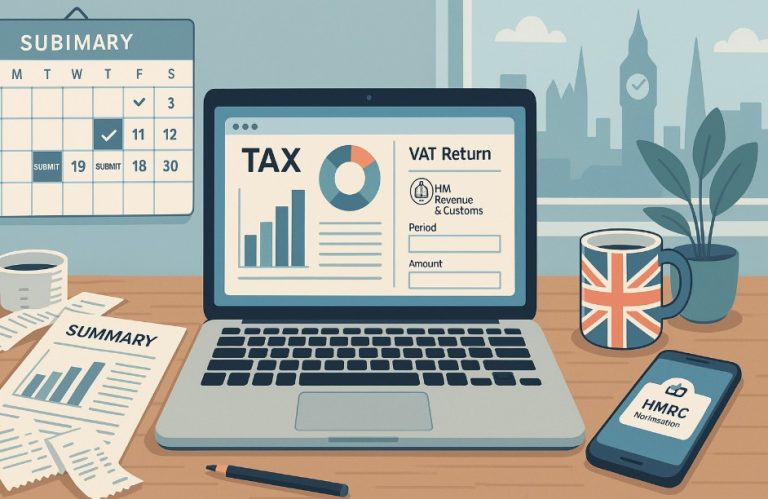Why Is Angela Rayner’s Tax Memo Creating Controversy?
The memo, titled “Alternative Proposals for Raising Revenue”, was submitted to the Treasury in March 2025 ahead of the Spring Statement. Its contents suggest a shift in Labour’s fiscal direction one focused on generating additional tax revenue without resorting to welfare cuts.
What Did the Memo Propose?
Rayner’s memo outlined a series of potential tax reforms intended to raise between £3 billion and £4 billion per year. The core proposals included:
- Reinstating the pensions lifetime allowance, which had been scrapped under the previous Conservative government.
- Raising dividend tax rates and eliminating the £1,000 tax-free dividend allowance.
- Ending inheritance tax relief on Alternative Investment Market (AIM) shares, which are typically used for succession planning and SME investment.
- Freezing the additional rate income tax threshold at £125,140, effectively pushing more earners into the higher tax bracket.
- Increasing the bank surcharge to 5% will impact corporate profitability in the financial sector.
- Tightening rules on commercial property, including closing a stamp duty loophole and raising the annual tax on enveloped dwellings (ATED).
These measures, according to Rayner, would be politically palatable, socially fair, and would not raise taxes on what Labour defines as “working people.”
Are These Proposals a Tax Raid or Prudent Policy?

The term “tax raid” has been used extensively in media reports, particularly by opposition voices.
Conservative MP Neil O’Brien described Rayner’s plan as “very, very alarming”, expressing concern that the UK economy could be further damaged by increasing the tax burden.
According to O’Brien:
“The UK economy needs more tax hikes like it needs a hole in the head.”
He warned that Labour’s tax strategy disproportionately impacts lower and middle-income earners, despite being framed as a progressive approach.
O’Brien also cited growing redundancy issues in state schools, attributing them to Labour’s handling of tax-funded public sector obligations.
How Would the Tax Proposals Affect UK Savers?
Though the memo focuses on wealthier individuals, the implications could reach far beyond the top income brackets.
Reintroducing the pension lifetime allowance could discourage long-term saving, especially for professionals approaching retirement age.
Meanwhile, increased dividend taxes could hit middle-income savers who rely on investment income.
Assets and Income Streams Most Likely to Be Affected
| Financial Instrument | Current Tax Treatment | Proposed Change | Potential Impact |
| Pension contributions | No lifetime allowance cap | Reinstated cap (approx. £1.07m) | Penalises high earners saving for retirement |
| Dividends | First £1,000 tax-free; then 8.75% to 39.35% | Removal of allowance; rate increase | Reduces returns for retail investors |
| AIM shares | 100% inheritance tax relief | Relief removal | Affects estate planning, startup investment |
| High incomes | 45% over £125,140 | Threshold frozen | More earners pay higher tax |
| Bank profits | 3% surcharge | Increased to 5% | Hits financial institutions |
While these measures may appear targeted, economists argue that the broader financial ecosystem, retail investors, small business owners, and savers would also experience downstream effects.
How Is Labour Managing Internal Divisions Over Fiscal Strategy?

The memo leak has not only triggered public debate but also exposed tensions within Labour’s leadership. While Chancellor Rachel Reeves has repeatedly stated that new tax hikes are not on the table, Rayner’s proposals suggest otherwise.
This divergence in fiscal approach reveals a rift between Labour’s centrist leadership and its left-leaning senior members.
Critics such as Mel Stride, Shadow Chancellor, warned that Labour’s top ministers seem to be reverting to the “tax-and-spend” policies associated with Jeremy Corbyn’s tenure.
Furthermore, the leak underscores Rayner’s growing influence within the party and her willingness to challenge Starmer-era moderation.
Analysts have pointed out that her rapid rise from Corbyn supporter to Deputy PM brings with it ideological baggage that is now resurfacing in the form of aggressive fiscal reform proposals.
Will These Policies Impact Startups and Entrepreneurs?
The decision to eliminate AIM inheritance tax relief has particularly significant implications for the UK’s startup landscape. The AIM market is often used by investors to fund early-stage businesses with favourable tax conditions as a key incentive.
Removing this relief could:
- Reduce the flow of private capital into innovative firms.
- Make UK startups less attractive to angel investors.
- Push capital toward offshore markets or more tax-friendly jurisdictions.
Financial experts believe such a move could hinder the tech sector’s growth, reduce job creation in emerging industries, and contradict the government’s stated aim of supporting entrepreneurship.
What Are Financial Advisors Recommending?
In light of the uncertainty, financial planners are advising clients to act prudently. With Labour maintaining a commanding lead in the polls, the likelihood of some fiscal changes post-election is high.
Savers are advised to:
- Maximise current ISA and pension allowances before any changes are implemented.
- Consider crystallising investment gains ahead of potential CGT or dividend rate increases.
- Reassess estate planning strategies in anticipation of inheritance tax reforms.
Are Public Services Being Strained by Labour’s Tax and Spend Plans?

Opposition figures argue that Labour’s failure to properly fund public services, despite increasing the tax burden, is creating critical weaknesses.
Neil O’Brien claimed that up to 13,000 teachers could lose their jobs due to a failure to fully fund pay increases and tax adjustments for schools.
According to the Institute for Fiscal Studies (IFS), these shortfalls have created an £800 million gap in the education budget alone, forcing schools to make difficult staffing decisions.
This financial pressure adds to the perception that Labour’s tax policies are failing to achieve the balance between raising revenue and supporting essential services.
Should UK Savers Prepare for Policy Changes Before the Election?
Although the tax proposals remain unofficial, the leak signals a potential direction of travel for a Labour government. Acting on speculation carries risks, but preparatory planning is advisable.
Strategic Planning Considerations
| Action | Reason |
| Increase pension contributions | Lock in benefits before the lifetime cap returns |
| Review dividend-heavy portfolios | Prepare for rate increases and allowance removal |
| Update estate plans | Account for AIM relief removal and threshold freezes |
| Seek professional advice | Tailor strategy to individual risk and goals |
Conclusion: What Comes Next for Angela Rayner’s Fiscal Vision?
Angela Rayner’s leaked memo has reignited the national debate over wealth, savings, and taxation.
While supporters see it as a progressive plan to make the rich pay more, critics warn it’s a blunt instrument that could undermine investor confidence, reduce startup funding, and slow economic recovery.
The true direction of Labour’s economic policy may only become clear post-election, but one thing is certain: UK savers should not remain passive.
Financial landscapes can shift rapidly, and the time to prepare, whether to adjust portfolios, revise estate plans, or reassess investment strategies, is now.
Frequently Asked Questions
What is the pension’s lifetime allowance, and why is its return significant?
The pension lifetime allowance capped the amount individuals could save in their pension pots without incurring extra tax charges. Its return would penalise those saving for retirement beyond a set threshold, discouraging long-term investment.
Is the leaked memo Labour’s official tax policy?
No. The memo reflects internal discussion and has not been endorsed by the Chancellor or officially adopted. However, it reveals strong support for alternative revenue strategies among senior party members.
How could the end of AIM inheritance relief affect businesses?
AIM relief incentivised investment in smaller companies. Removing it could dry up funding sources for UK startups, limiting innovation and job creation.
Will Labour tax ISAs?
There is no current evidence that Labour intends to tax ISAs. However, the inclusion of other traditionally protected financial vehicles in the memo has made some investors cautious.
Why is there concern about dividend tax increases?
Many retirees and middle-class savers rely on dividends for income. Raising these taxes without compensation elsewhere could reduce their net earnings.
Could public service funding suffer despite higher taxes?
Yes. Critics argue Labour has not matched tax revenue with adequate funding for services like education, where schools are already facing staff redundancies.
Should people move their money abroad to avoid new taxes?
Offshoring assets may have legal and ethical complications. It’s essential to consult a qualified financial adviser before taking such actions.







